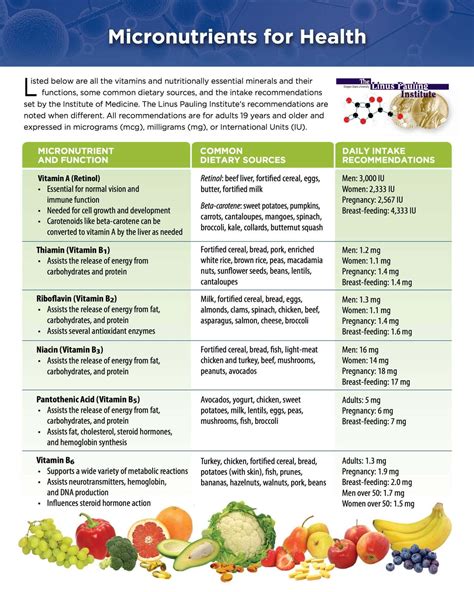How can men optimize diet for sustained energy & razor-sharp focus?

Fueling the Male Machine: Beyond Basic Nutrition
In today’s fast-paced world, men often seek an edge – whether in their careers, fitness, or personal lives. While many factors contribute to peak performance, the foundation lies firmly in nutrition. A properly optimized diet can be the secret weapon for sustained energy levels, unwavering mental clarity, and the sharp focus needed to excel. It’s not just about eating; it’s about strategic fueling.
The Pillars of Sustained Energy
To keep the engine running smoothly without crashes, men need to prioritize specific macronutrients and micronutrients. Think of your body as a high-performance vehicle; it needs the right type of fuel, not just any fuel.
1. Complex Carbohydrates: The Steady Burn
Unlike simple sugars that provide a quick spike and subsequent crash, complex carbohydrates offer a gradual release of glucose into the bloodstream. This ensures a consistent energy supply, preventing the dreaded mid-afternoon slump. Opt for whole grains like oats, brown rice, quinoa, and whole-wheat bread. Legumes and starchy vegetables (sweet potatoes, squash) are also excellent choices.

2. Lean Proteins: Building Blocks & Satiety
Protein is crucial for muscle repair and growth, but it also plays a significant role in satiety and sustained energy. It slows down digestion, helping to stabilize blood sugar levels. Incorporate lean protein sources at every meal: chicken breast, fish (salmon, tuna), lean beef, eggs, Greek yogurt, and plant-based options like tofu, tempeh, and lentils.
3. Healthy Fats: Brain Power & Hormonal Balance
Often misunderstood, healthy fats are essential for brain function, hormone production, and the absorption of fat-soluble vitamins. Omega-3 fatty acids, found in fatty fish, flaxseeds, and walnuts, are particularly vital for cognitive health and reducing inflammation. Avocados, nuts, seeds, and olive oil are also excellent sources of beneficial fats.

Micronutrients for Mental Acuity
While macronutrients provide the bulk of energy, specific vitamins and minerals act as co-factors for countless bodily processes, including neurotransmitter production and energy metabolism. Deficiencies in these can significantly impact focus and mood.
- B Vitamins (B6, B9, B12): Critical for energy production and nerve function. Found in whole grains, leafy greens, meat, and dairy.
- Magnesium: Involved in over 300 enzymatic reactions, including energy metabolism and nerve transmission. Good sources include leafy greens, nuts, seeds, and whole grains.
- Iron: Essential for oxygen transport, a lack of which can lead to fatigue and poor concentration. Red meat, lentils, spinach, and fortified cereals are rich in iron.
- Zinc: Important for immune function and cognitive processes. Found in oysters, beef, pumpkin seeds, and legumes.

The Role of Hydration and Meal Timing
Hydration: The Unsung Hero
Even mild dehydration can impair cognitive function, mood, and energy levels. Make sure to drink plenty of water throughout the day. Herbal teas and water-rich fruits/vegetables also contribute to your fluid intake. Aim for at least 8 glasses (about 2 liters) daily, more if you’re active.
Strategic Meal Timing
Eating regular, balanced meals and snacks can prevent drastic blood sugar fluctuations. Aim for 3 main meals and 1-2 small, healthy snacks if needed. Avoid skipping meals, especially breakfast, which “breaks the fast” and kickstarts your metabolism. Distributing your nutrient intake throughout the day helps maintain stable energy and focus.

Foods to Limit or Avoid
Just as important as what to eat is what to limit. Highly processed foods, sugary drinks, and excessive amounts of refined carbohydrates can lead to energy crashes, brain fog, and long-term health issues. While caffeine can provide a temporary boost, over-reliance or consumption late in the day can disrupt sleep, ultimately negatively impacting energy and focus.
Putting It Into Practice: Practical Tips
- Meal Prepping: Dedicate time to prepare healthy meals and snacks for the week. This reduces the likelihood of making poor food choices when hungry.
- Mindful Eating: Pay attention to your body’s hunger and fullness cues. Eat slowly and savor your food to aid digestion and prevent overeating.
- Balanced Plates: Aim for a balance of complex carbs, lean protein, healthy fats, and plenty of vegetables at each meal.
- Listen to Your Body: Everyone is different. Pay attention to how certain foods make you feel and adjust your diet accordingly.
- Consult a Professional: For personalized advice, consider consulting a registered dietitian or nutritionist.

Conclusion: A Holistic Approach to Peak Performance
Optimizing your diet for sustained energy and razor-sharp focus is an ongoing journey, not a destination. By making conscious choices about what you eat, prioritizing whole, nutrient-dense foods, and staying hydrated, men can unlock their full potential. This dietary optimization, coupled with adequate sleep and regular physical activity, forms a powerful trifecta for peak physical and mental performance, empowering you to tackle challenges with vigor and clarity.









